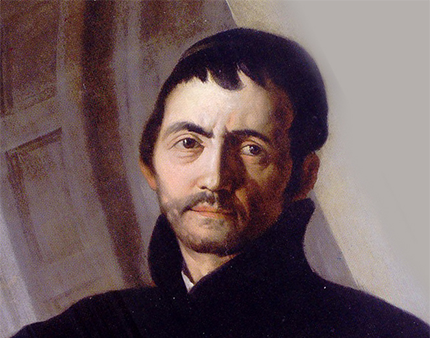Domenico Zipoli may not be a household name like Bach or Mozart, but his contributions to classical music are nothing short of remarkable. Born in 1688 in Italy, Zipoli’s life was a tapestry woven with musical brilliance and cultural exploration. Here are ten fascinating facts that shed light on this enigmatic composer:
- South American Sojourn: Zipoli’s journey led him far beyond the confines of Europe. In the early 18th century, he embarked on a voyage to South America, where he settled in what is now Argentina. This bold move was spurred by his desire to spread the beauty of Baroque music to the New World.
- Jesuit Connection: Upon arriving in South America, Zipoli found himself immersed in the world of the Jesuit missions. He became closely associated with the Jesuit order, dedicating much of his musical talent to enriching religious ceremonies and cultural events within their communities.
- Organ Virtuoso: Zipoli’s prowess as an organist was legendary. He was celebrated for his mastery of the instrument, captivating audiences with his virtuosic performances. His compositions for the organ remain cherished gems of the Baroque repertoire.
- Educator Extraordinaire: In addition to his musical pursuits, Zipoli was also a dedicated educator. He played a pivotal role in establishing music schools within the Jesuit missions, where he nurtured the talents of aspiring musicians and composers.
- Cultural Exchange: Zipoli’s presence in South America facilitated a rich cultural exchange between the Old World and the New. Through his music, he bridged continents, infusing European Baroque traditions with indigenous influences to create a harmonious blend of sound.
- Operatic Aspirations: While Zipoli is best known for his sacred music, he also dabbled in opera. His compositions for the operatic stage showcase his versatility as a composer, blending emotive melodies with intricate harmonies.
- Legacy of Liturgical Music: Zipoli’s sacred compositions are a testament to his deep faith and spiritual insight. His Mass settings, hymns, and motets exude a profound sense of reverence, earning him a lasting legacy as a master of liturgical music.
- Rediscovery and Revival: Despite falling into relative obscurity after his death in 1726, Zipoli’s music experienced a resurgence in the 20th century. Scholars and musicians alike have rediscovered and revived his works, ensuring that his contributions to the Baroque era are not forgotten.
- Influence on Future Generations: Zipoli’s influence extends far beyond his own lifetime. His innovative approach to composition and his adventurous spirit paved the way for future generations of composers to explore new horizons in music.
- Global Appreciation: Today, Zipoli’s music continues to captivate audiences around the world. From the grand cathedrals of Europe to the concert halls of South America, his compositions resonate with listeners, serving as a timeless reminder of the power of music to transcend boundaries and unite hearts.


Comments are closed